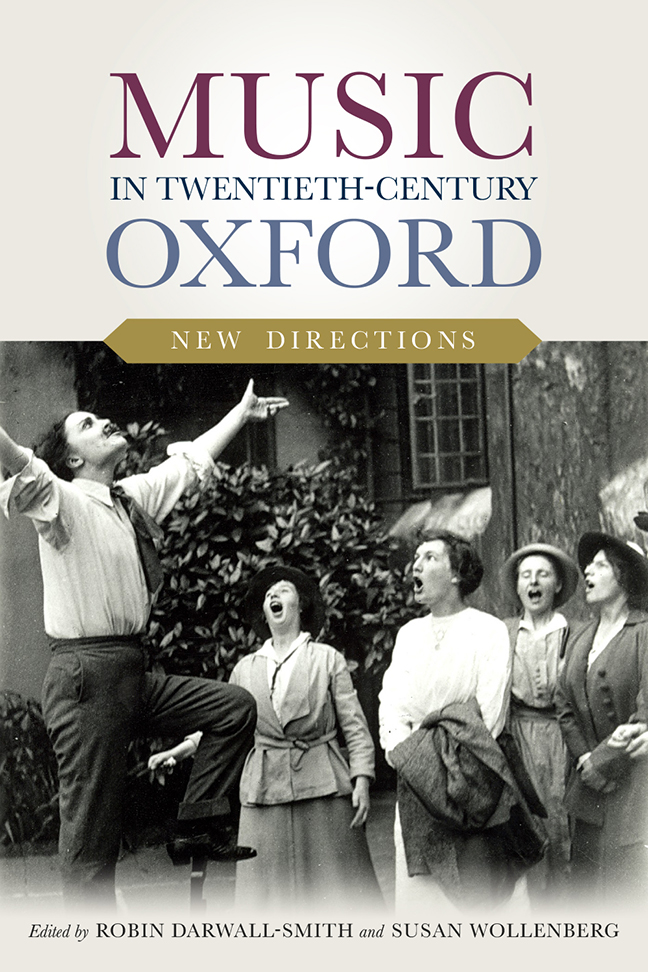3 - The Oxford Bach Choir, 1896–1997
Published online by Cambridge University Press: 09 January 2024
Summary
‘On December 7th 1896, the Oxford Bach Choir conducted by Dr. Basil Harwood, organist of Christ Church, gave its first performance in St. Mary Magdalene Church’. Thus Cyril Bailey opened his jubilee history of the Oxford Bach Choir (OBC). Bailey continued:
The Choir had been formed … at the suggestion, so Dr. Harwood insists, of Mr. W. H. Hadow; he mentions as co-founders Mr. Reginald Lane Poole and Mrs. Poole … Mr. and Mrs. H. T. Gerrans, Mr. P. V. M. Benecke of Magdalen, and Miss Mabel Price.
Basil Harwood, who came from a prosperous background, studied music at Leipzig. Some of his compositions (including his anthem ‘O how glorious is the Kingdom’) are still sung. Henry Hadow was Classics Fellow at Worcester College, while the historian Reginald Lane Poole edited the English Historical Review; both published books on music. Poole's wife Rachael compiled a catalogue of portraits held by Oxford University and its colleges. Henry Gerrans was Bursar of Worcester College and a distinguished mathematician. Paul Benecke, Classics Fellow of Magdalen College (and grandson of Felix Mendelssohn), was a fine pianist. Mabel Price was the daughter of Bartholomew Price, Master of Pembroke College. Cyril Bailey was Classics Fellow of Balliol, and his wife Gemma helped to run the choir.
The OBC's founders came from that modern University elite created when dons were permitted to marry. There were also important recruits from the women's colleges, including Violet Winslow, Bursar of St Hilda's College from 1914–36, and OBC Secretary, who encouraged many St Hilda's undergraduates to join. There were existing choral societies in Oxford, notably the Oxford Choral and Philharmonic Society (the ‘Choral and Phil’), created in 1890 from the Oxford Choral Society and the Philharmonic Society, founded in 1819 and 1865 respectively. Nevertheless, as Bailey wrote, ‘Bach enthusiasts in Oxford feared that he had been unduly neglected there and wished to make special provision for the performance of his works’.
The nineteenth century had seen an awakening of interest in Bach's music in Britain, culminating in the founding of the London Bach Choir (henceforth LBC) in 1876. People in Oxford took notice; in March 1873 the St Matthew Passion was performed in Christ Church Cathedral. On 16 March 1896, a ‘Passion Service’ (opening with a psalm and prayers, and ending with a blessing) was given in Christ Church, with Basil Harwood at the organ.
- Type
- Chapter
- Information
- Music in Twentieth-Century OxfordNew Directions, pp. 31 - 53Publisher: Boydell & BrewerPrint publication year: 2023



